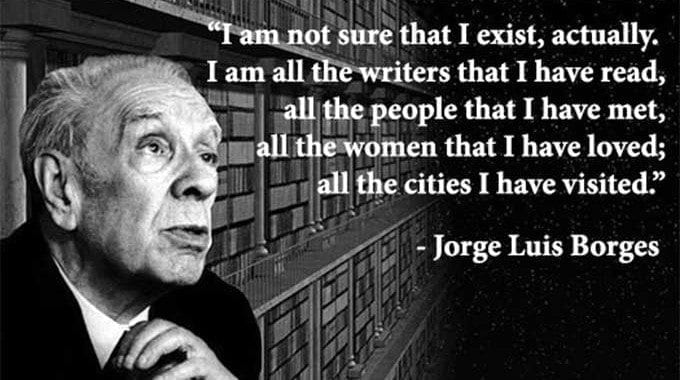As La Feria Internacional del Libro de Buenos Aires, one of the biggest book fairs in Latin America, is coming to a close this weekend and to keep the literary mood going, let’s take a look into the life of one of our most famous Argentine writers – Jorge Luis Borges:
Jorge Luis Borges was the most influential Spanish-language writer and thinker of the 20th century. He actively shaped Latin-American literature through his short-stories, poems, and translations. Even though Borges spent many years of his life abroad, he was nevertheless deeply involved in the cultural and political dynamics that were shaping Argentina during his life. Simultaneously, he redefined a generation of thinkers, populated ideas that would challenge political ideologies around the world, and championed a new style of literature.
Borges was born in the Palermo district in 1899 when it was a less developed suburb outside of the affluent city center of Buenos Aires. He was raised in an educated family and his father had amassed a large collection of literature in both Spanish and English. Borges began reading works by H.G. Wells, Shakespeare, Cervantes and other famous writers before he was ten. At the age of 9, he read and then translated Oscar Wilde’s story “The Happy Prince” from Spanish to English; this translation was later published in a local newspaper. Later on in Borges’ life he reflected that “if [he] were asked to name the chief event in [his] life, [he would] say [his] father’s library”. Thus, his precocious childhood laid the foundation that would inspire him to become the prominent literary figure he is regarded as today.
Proceeding his childhood in Buenos Aires, Borges continued to develop his writing abilities abroad. In 1914, his family left Argentina and moved to Switzerland. There he attended school and eventually received a degree from the Collège de Genève and learned French and German. After he got his degree, Borges and his family moved frequently, mostly through Spain. While traveling, Borges was exposed to various avant-garde writing movements where he and his contemporaries would challenge pre-existing styles and attempt to develop new and liberating forms of literature. As a result of his exploration with various unconventional writing movements, Borges became an advocate of free-verse, imaginative style and content, and experimental modernist prose which was known as the Ultralist movement.
Borges finally returned to Buenos Aires in 1921 and he brought with him the Ultralists mentality. Back home he rediscovered the city and began to comprise a series of poems celebrating Buenos Aires in the avant-garde style he engendered in Spain. He continued to write poems and articles for journals during the next nine years. However, Borges was forced to change his style after a series of dramatic events – including the death of his father and a severe head injury he suffered and subsequent blood poisoning – nearly killed him in 1938. This dramatic moment in his life is regarded as the impetus that would unlock his creative potential and lead to the philosophical and fantastical themes quintessential to Borgesian literature.
More on “The Life and Legacy of An Argentine Literary Giant – Jorge Luis Borges – Part Two”
Alex




